10 Ways To Live An Environmentally Sustainable Lifestyle
Human beings have made enormous changes to the environment throughout the last 100 years. While some of these changes have benefited us, mother nature continues to suffer from our lack of consideration for it. Because of this, there may be less time on earth for us than originally planned. It's now our turn to begin taking responsibility for our actions and restore what we've absentmindedly destroyed.
Recently, people have found ways to go about their daily routines by making simple efforts to be more sustainable. Before beginning these eco-friendly habit changes, we must first understand the meaning of environmental sustainability and why it matters.
What is Environmental Sustainability?
Environmental sustainability is the ability to sustain (or maintain) our natural resources to build balance in the environment. In other words, sustainability is making sure to give back to the environment as much and as often as we take from it.
Humans have been taking excessively more resources from mother nature than we've been giving to it. Because of this, there is an environmental imbalance between humans and nature that's caused major issues like climate change, deforestation, air and water pollution, and more.
Why is Environmental Sustainability Important?
The environment and maintaining its health are the epitomes of human and animal existences. As the environment's health deteriorates, so too do human and animal health. Everything is connected, which is why it's paramount to take good care of the world we live within.
To survive, living beings need natural weather patterns, clean air and water, and an abundance of natural resources. Deforestation and air/water pollution are not helping us survive. Within the past few decades, people have seen the repercussions of neglecting our environment's health.
In 1969, the United States government enacted the National Environmental Policy Act (NEPA), which ensures that humans and nature work together in harmony to produce a better tomorrow for future generations. One year later, the United States Environmental Protection Agency (EPA) was created to further advocate sustainable practices.
People have begun altering their unhealthy habits by making more eco-conscious decisions to promote sustainable living. You can start changing your habits too without much effort!
10 Simple Ways to Start Living More Sustainably
While there are a plethora of methods to start making eco-friendly decisions, here are just 10 simple ways to get started on helping out mother nature that you can easily incorporate into your everyday routine:
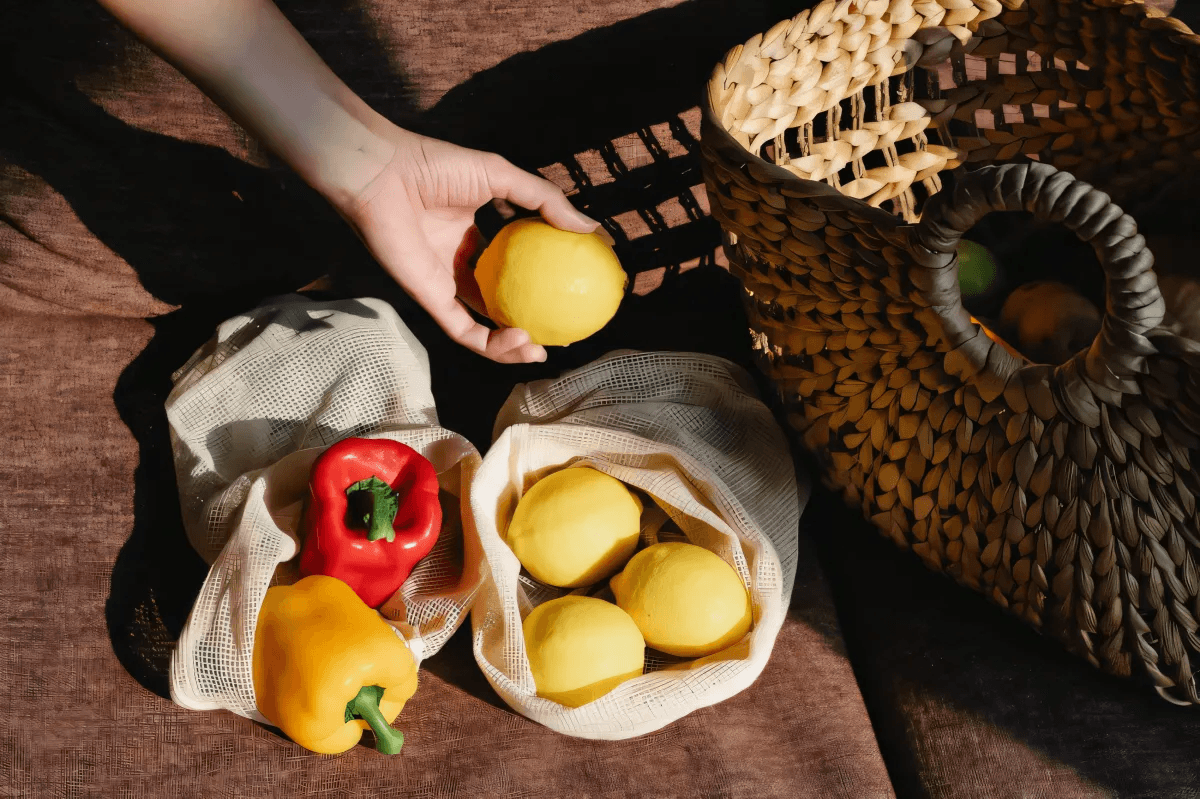
1. Take Advantage of Reusable Grocery Bags
After returning home from the grocery store, people are left with a bunch of little plastic bags. People will often just use these plastic bags for trash and throw them away. However, wind can blow these plastic bags away from landfills and into trees, lakes, and soil, further damaging the environment. These bags also break down into microplastics, which cause more environmental problems.
Laura Parker wrote an article for National Geographic about the harmful effects of plastic pollution. In this article, Parker mentions that almost 700 animal species are affected by plastic litter infiltrating their natural habitats. Unfortunately, many animals will die from accidentally eating or choking on plastics. As more people acknowledge the issues with plastic materials, they've started to use healthier alternatives.
Numerous companies now encourage consumers to purchase a few reusable bags made of cotton and similar materials to further limit plastic waste when shopping. They're bigger and more durable than typical plastic grocery bags. These reusable bags can be used multiple times more than plastic ones.
Within the last year, I've switched to reusable bags when I buy groceries and it was a fantastic decision. I don't have to worry about carrying 10 little bags inside; Now, I only need to carry about 4 big reusable ones. Stores even sell produce bags to hold fruits and vegetables! This is a wonderful eco-friendly way to actively reduce plastic pollution every day.
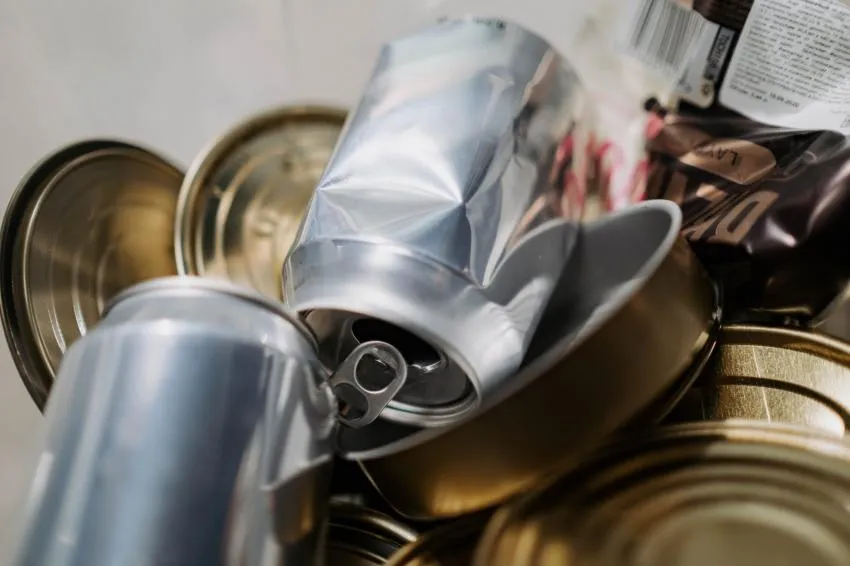
2. Recycle Cans and Bottles
Grocery stores all over the United States offer customers the opportunity to return used soda cans, plastic, and glass bottles to recycle them. Not only is this a beneficial way to reduce wastes in landfills, but people can also even receive compensation for bringing the cans and bottles back!
According to the National Conference of State Legislatures, there are currently 10 U.S. states that give customers between $0.05-$0.15 back for each can or bottle they return. For example, in Iowa, people can receive $0.05 back for returning their used jars, cartons, glass, and more. This seems like enough incentive to encourage people to return their recyclable items.
I take my recyclables back every month or so. It's been a super-easy way to get a few extra dollars back, and most importantly, do my part to help the environment.
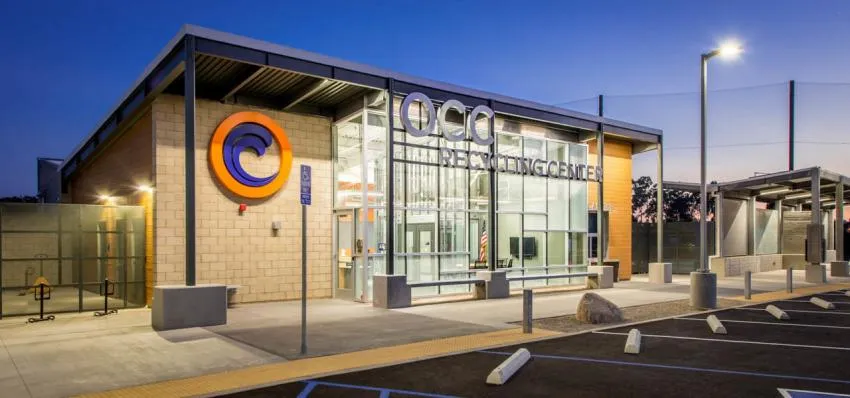
3. Bring all the Recyclable Items to a Recycling Center
Some places may not offer can and bottle recycling at local stores, however, they may have a recycling center! Here, people can bring all different types of recyclable items to be reused in other ways. Some materials accepted at recycling centers include cardboard, specific metals, and glass.
Specific facilities, like the Orange Coast College Recycling Center (shown above), allow people to recycle computers and other technological devices.
Search for your nearest recycling center and start bringing your used products there to help create new ones as well as continuing to reduce landfill wastes.
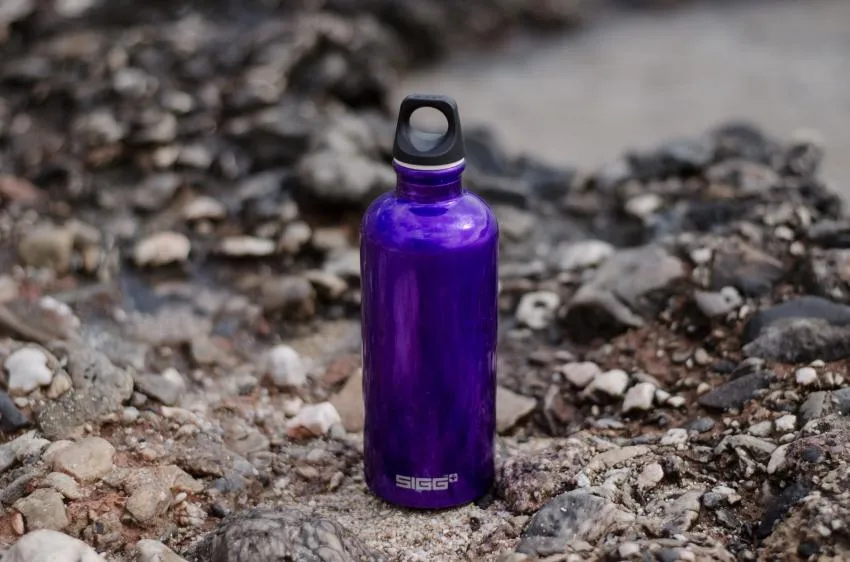
4. Get a Designated Water Bottle
According to The Green Team, Americans throw away approximately 22 billion plastic water bottles every year. That statistic is just for America, so the number of plastic water bottles being thrown away throughout the whole world must be mind-blowing. If more people transitioned from purchasing disposable bottles to using a single refillable bottle, we could cut that number down to a small fraction of its original estimate.
Schools and offices in the United States recently added water bottle refill stations to drinking fountains, which makes filling up the bottles more convenient. Consider abandoning the plastic trend and buy a nice metal or glass water bottle to last you a lifetime.
After learning how harmful plastic water bottles are to nature, I stopped using them immediately. I bought my favorite reusable water bottle a couple of years ago and it still works like it's brand new!
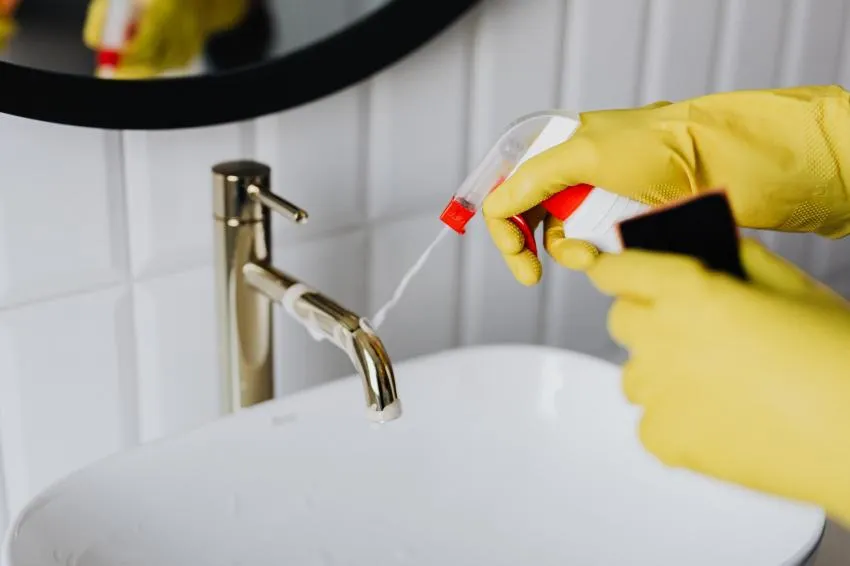
5. Utilize Alternative, Environmentally Friendly Cleaners
As environmental research on the effect human products have on natural ecosystems develops, it has become evident that many household cleaners contain harsh unnatural chemicals that further deteriorate mother nature. Bleach is one well-known cleaning chemical that may seem beneficial while disinfecting the house, but it is more detrimental than we think.
An article written by Emily Beach from hello MOTHERHOOD explains that not only does bleach release toxins into the air, but it can also cause animals to form mutations, become infertile, or perish. Fortunately, scientists have discovered more eco-friendly ingredients to incorporate into their products so that this may decrease the chances of releasing more toxic chemicals into the environment.
Clorox, one popular cleaning brand in America, released Compostable Cleaning Wipes with natural ingredients to promote the use of green products. Another organic cleaner is lemon juice, which works as a natural stain remover.
My roommate and I prefer to clean with lemon juice as it does an excellent job and it smells way better than bleach!
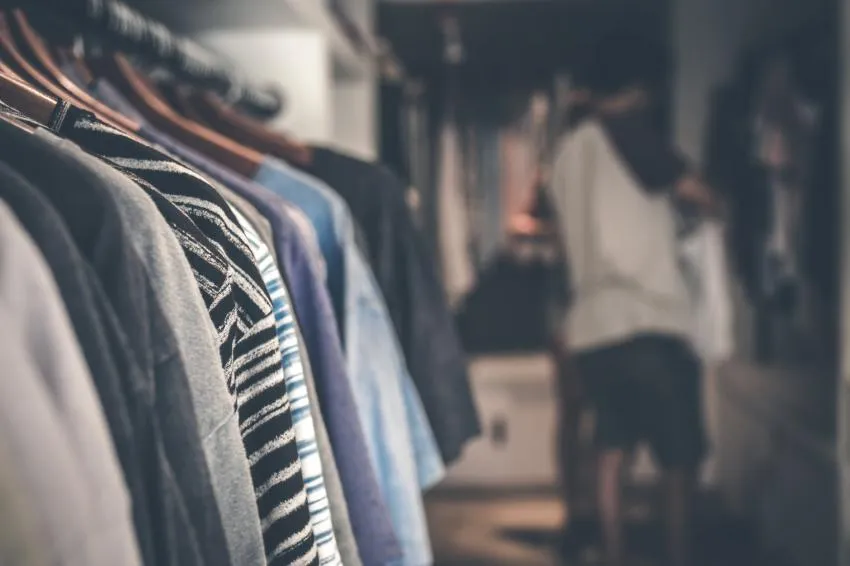
6. Go Thrift Shopping
Thrift shopping is gaining popularity these days as the desire for all things vintage spreads. I live for thrifting because I always find something unique, something I've never seen before.
There are multiple advantages when thrift shopping. Doing so decreases the number of fabrics, materials, and water being used to design new clothing pieces. Additionally, it's significantly cheaper to find awesome clothes, dishes, furniture, and more at these stores. Customers are getting more for less! When I go thrifting, I find shirts and dresses (even fancy name-brand pieces) for less than $5. That sounds like a pretty good eco-conscious deal.
Goodwill and Salvation Army are two thrift store examples where people can buy incredible second-hand items to add to their wardrobe or home.

7. Upcycle Old Clothing or Furniture
Do you own a worn-out, old pair of jeans? Or a cup ring stained table you bought 10 years ago? Upcycling is the way to transform that seemingly disposable item into something new and cool! I learned about upcycling from various DIY YouTube channels. It's changed the way I look at ragged clothes and furniture.
Last summer, my friend had a pair of jeans with massive rips in the knees. Instead of throwing them out, she grabbed some fabric and put her sewing skills to work. She patched up each hole using adorable patterned fabric and her jeans look better than ever! If you have something for your home you'd like to keep longer, repaint it, replace that old fabric, sand it down, the refurbishing options are endless.
A wonderful YouTube channel to check out for upcycling tips is XO, MaCenna. Here is one of her videos where you can learn ways to upcycle thrifted furniture:
There's no need to throw out the old and replace it with new when there's a way to make the old look as good as new.
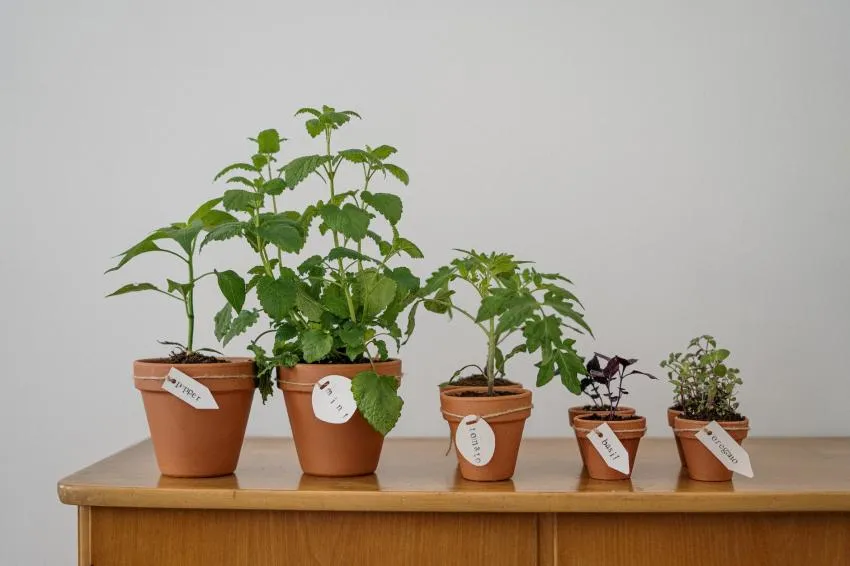
8. Grow Some Plants
Plants are a refreshing, aesthetically pleasing addition to any household environment. They also provide natural benefits to both humans and wildlife.
One life-changing result of having plants in the house is reduced stress levels. A study published in the Journal of Physiological Anthropology tested this hypothesis. In this study, individuals completed a small computer task and repotted a plant. The results indicated that people felt way less stressed interacting with the plants than the computer task. Plants make people feel comforted.
Another advantage to growing plants is a literal breath of fresh air. Because plants take in carbon dioxide and release oxygen, it cleanses the air around them. As the plants continue to grow, it'll encourage bees to collect pollen and fertilize other plants. It's a beautiful way to give back to nature.
I'm currently taking care of a cactus plant and I have a few pots of cat grass growing outside my window. Not only do my plants enhance the environment around them, but they're also adorable natural decorations for my apartment.
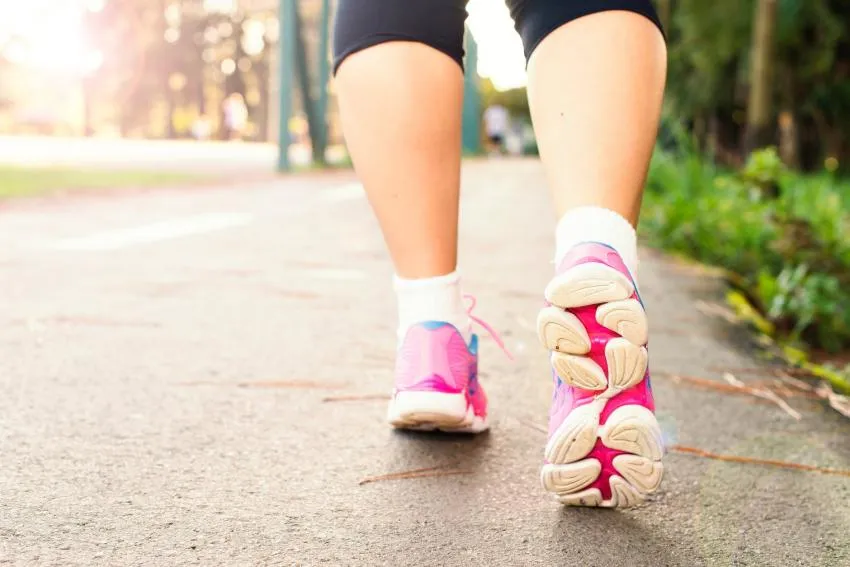
9. Walk or Ride a Bike Instead of Driving
Although we think nothing of it on our daily drive to school or work, our helpful cars are not helping with rising levels of air pollution. Our vehicles emit fossil fuels into the air, poisoning it and ourselves. Fossil fuels continue to destroy the Ozone layer, which protects the earth from the sun's harmful UV rays. Taking a little more time to arrive at a destination by walking or biking will decrease the amount of fossils fuels in the air, thus repairing the Ozone layer.
Walking or biking also promotes a healthy, easy exercise routine. Professionals at Mayo Clinic conclude that going for frequent walks or bike rides improves mood, memory, and balance. They also prevent negative health conditions such as heart disease and stroke.
I live close to school, so I'm able to walk there rather than drive. I just feel better knowing that I got a bit of exercise and did my part for the day by not taking my car. Take care of your body and the planet by driving places less and getting those strong calf muscles.

10. Do Some Research, educate yourself and others
Some say "ignorance is bliss." However, that is the wrong mindset to have when it comes to how we treat the environment around us. Our ignorance has caused us to scramble for answers on how to reverse the damage we've done to our earth. Changes are consistently being made so that we can restore what was lost or what we're currently losing.
The first step to making a difference is getting educated. Learning more about how our actions impact the environment around us and how we can do better is the best way to begin. Head to your local library, spend an hour researching on the internet, whatever it takes to spark a passion for positive change.
I've been a member of a sustainability club at my school for the past three years and I still have so much to learn. There's a lot of sustainability work to be done.
Creating a Sustainable Future!
You may be asking "Is a sustainable future even possible for us to achieve?" The answer is yes! Restoring nature's vital attributes that we've been abusing is not yet a lost cause. There is still time to mend mother nature. However, the environmental clock to begin making bigger sustainable strides is ticking. So, we must act now while we still have plenty of time to make improvements.
As more people learn about their environmental impacts and change their bad habits in even the simplest ways, it is one sustainable step in the right direction to give back to mother nature. If each person on earth just altered one bad habit to be more sustainable, it would be an immense help to heal our planet.
Everyone on earth has a job to do to protect it. Any small adjustment to your daily routine helps.
Please do your part.
Opinions and Perspectives
Looking forward to trying some of these ideas. Starting with the easy ones first.
Some solid advice here for beginners. Wish I had read this years ago.
Been doing the reusable bag thing for years. Can't imagine going back to plastic.
Changed my cleaning routine based on this. House still sparkles without harsh chemicals.
Trying to implement these changes in my small business. Customers seem to appreciate it.
Love how practical these suggestions are. No extreme lifestyle changes required.
My garden has become a neighborhood attraction. Even inspired others to start growing.
Never thought about the impact of cleaning products before. Eye-opening stuff.
Shared this with my neighborhood group. We're starting a community recycling initiative.
Anyone else notice their grocery bill went down after switching to reusable bags?
Would love to see more specific brands recommended for eco-friendly products.
The upcycling suggestion is great. Fixed up an old table instead of buying new.
Started small with just recycling, now doing most of these. It gets easier with time.
Walked to work all week instead of driving. Feeling pretty good about my carbon footprint reduction.
I collect rainwater for my plants. Another easy sustainable practice not mentioned here.
Our office implemented the water bottle policy. Took some getting used to but now everyone loves it.
The bit about cleaning products opened my eyes. Switching to eco-friendly options this weekend.
Finding it hard to give up convenience for sustainability. The struggle is real.
My kids love helping with the recycling. It's become a fun family activity.
We need more articles like this that make sustainability feel achievable for regular people.
Started walking more after reading this. Lost weight and saving money on gas. Win-win!
Interesting article but it misses some key points about sustainable food choices and eating local.
My family thought I was crazy for thrift shopping until they saw my finds. Now we make it a weekend activity.
The recycling center near me gives cash for electronics. Great incentive to not throw them in the trash.
Just calculated how much I've saved by switching to reusable products. It really adds up over time!
These suggestions are fine but feel like a drop in the ocean compared to industrial pollution.
Been using a water filter instead of buying bottles. Tastes better and no more plastic waste.
The point about reusable bags is great but I wish they'd mentioned alternatives to plastic produce bags too.
Started a community garden in our neighborhood after reading about sustainability. It's brought everyone together.
Totally agree about thrift shopping. Found designer clothes for a fraction of the price and feel good about reducing waste.
The article makes it sound easier than it is. I tried biking to work but showed up sweaty and exhausted.
We've been doing most of these for years but never thought about the cleaning products. That's next on my list to change.
The plant growing suggestion is underrated. My indoor plants have made such a difference to air quality in my apartment.
My workplace started a sustainability initiative based on similar principles. It's amazing to see how much waste we've reduced.
I work at a grocery store and the number of people still choosing plastic bags is depressing. We need to charge more for them.
The statistics about plastic water bottles are shocking. I had no idea we went through that many!
Love the emphasis on education in point 10. I've learned so much just by following environmental news and science channels.
Been trying to implement these changes but it gets overwhelming. Maybe starting with just one or two is more realistic.
The cleaning products point is spot on. I switched to vinegar and water for most cleaning and it works just as well.
Actually started composting after reading similar articles. It's not mentioned here but it's another great way to reduce waste.
This is all well and good but we need stricter regulations on industrial pollution. That's the real problem.
I've been upcycling furniture for years and it's incredible how many amazing pieces people throw away. Just needs a little TLC.
My kids got really into recycling after we started collecting cans for money. It's a great way to teach them about sustainability.
The article downplays how expensive some of these changes can be. Not everyone can afford eco-friendly products.
Responding to the water bottle question - I keep multiple bottles, one at work, one in my car, and one at home. That helped me stick with it!
I tried the reusable water bottle thing but kept forgetting it at home. Any tips on building this habit?
You know what's interesting? I started using those eco-friendly cleaners mentioned in point 5 and my allergies actually improved.
The thrift shopping recommendation really resonates with me. I've found amazing clothes and saved so much money while reducing waste.
Walking instead of driving sounds great until you live in an area with no sidewalks and terrible public transport. Some of these suggestions aren't practical for everyone.
I disagree about blaming corporations entirely. If we all make small changes it adds up to big impact. I've cut my household waste by 50% just by being mindful.
The recycling tips are helpful but I wish my area had better recycling facilities. Our local center only accepts certain types of plastic.
I've been growing my own herbs for a year now. Not only is it sustainable, but my cooking tastes so much better with fresh ingredients.
This article makes some good points, but let's be real - individual actions won't solve climate change. We need major policy changes from governments and corporations.
I've started using reusable bags and it's amazing how quickly it becomes a habit. Plus they're so much stronger than those flimsy plastic ones!
